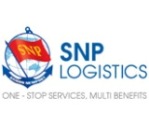Fourteen high-level Vietnamese Government Officials from various ministries and provincial authorities conducted a ground-breaking study mission to their counterpart Chinese and Singaporean government authorities during the week of June 23 - 28. The focus has been on developing and financing infrastructure for export and import of goods through ports, roads, bridges and other infrastructure services to achieve higher efficiency in transportation to attract and retain foreign investment and growth in exports.
This mission was funded by the U.S. Agency for International Development (USAID), and corporate sponsorship from Nike, APL and Maersk, in cooperation with Vietnam's Ministry of Planning and Investment, through the USAID Vietnam Competitiveness Initiative (VNCI) and U.S.-Vietnam Trade Council who organized the study mission.
The rapid growth of Vietnam’s economy over the past few years is putting a significant strain on the country’s physical infrastructure. With economic development expected to continue at a rapid pace, pressure on roads, ports and other infrastructure systems will increase, creating higher transaction costs, congestion, and inefficiencies.
The Vietnamese government has indicated a commitment to meeting these increased needs with new infrastructure projects. Several projects are underway and many more are in the planning stage. Given the urgency of inadequate infrastructure to support the rapid growth of exports and business expansion, and the long lead times from project planning through completion, many investors, donors, and local and national government officials are concerned about the likely impact of a projected infrastructure shortfall on the country’s economic development.
As members of a number of coalitions, and as individual companies, Nike, APL, Maersk and other businesses are committed to actively engaging the Vietnamese government on the urgency of building new infrastructure. Through funding the study tour, the sponsors hope to provide the government with information from multiple sources, which provide insight into the expected needs regarding infrastructure, as well as areas where associations have the greatest concern.
The delegation from Vietnam, led by Mr. Dang Huy Dong, Director General, Procurement Department, Ministry of Planning and Investment, included decision makers from the Ministry of Transportation, Government Office, Ministry of Finance and Provincial levels. Study mission objectives included gaining insights into the lessons being learned about the design, planning and implementation of infrastructure by local and national authorities to serve the needs of foreign and local investors. The mission also seeks to gain experience in the legal framework while establishing both financial and business models for developing, building, and maintaining public purpose infrastructure, including public-private partnerships (PPP), especially build-operate-own, build-operate-transfer, and build-transfer models, selecting investors based on transparent procurement procedures and efficient allocation of land use; and debt financing by national and local government.
During the visit to Ho Chi Minh City, China and Singapore, Vietnamese government officials met with the Guangzhou Construction Bureau, Shenzhen Port Authorities, Singapore Economic Development Board, Singapore Ministry of Industry and Trade, Singapore Ministry of Finance, Singapore Marine Port Authorities, as well as stakeholders responsible for infrastructure/export development, financing, project development and project management such Price Waterhouse Coopers, Lovells Lee & Lee, Fitch Ratings and other key exporters, logistics providers. Shirley Justice, General Manager, Nike Vietnam hopes that “the Vietnamese officials participating in the Study Mission experienced first-hand, some of the challenges and opportunities in the flow of goods from factory to ship to better appreciate the importance and complexity of a master plan pertaining to Infrastructure.” Ms. Justice also believes “After the Study Mission, Vietnamese officials will assess what aspects are applicable and adaptable to Vietnam to assist in the formulation and implementation of the country’s integrated master plan of Infrastructure development.”
The study mission highlighted three key lessons for attracting investment and sustaining economic growth:
1. Create A Good Economic Climate - low inflation, favorable credit, stable currency, positive balance of trade/payments, security for investors (all aspects), etc.
2. Establish Legal Structure and Policies that are pro-business and investor friendly, good customs processes to grow trade, especially for exports.
3. National Integrated Infrastructure and related services which have to be planned in advance:
• Integrated Master Plan for Air, Sea-Ports, Rail and Roads/Bridges
• National and Provincial collaboration
• Use of International Expertise, and Consultation with the Business Sector and Investment Community
• Foreign investment, particularly for Public-Private Partnerships
• Constant review of demands on infrastructure for planning ahead
• Larger, more integrated Ports/Infrastructure to manage large volume of goods instead of smaller parcels
|
VNCI, financed by U.S. Agency for International Development and managed by DAI, is working with government agencies to develop a legal framework that will improve the ability of local authorities to finance infrastructure through bond issuances and support the PPP models to build world class infrastructure. Further discussions on policy options to encourage the mobilization of private capital, project development and project management will continue in parallel with this mission to find the right solutions for Vietnam’s infrastructure development.
The U.S.-Vietnam Trade Council has worked on economic and political normalization between the two countries since 1989. Its educational affiliate, the U.S.-Vietnam Trade Council Education Forum, has since 1997 helped to provide technical assistance to Vietnam on issues relating to the U.S.-Vietnam Bilateral Trade Agreement, WTO Accession, and international global integration. |




.jpg)








